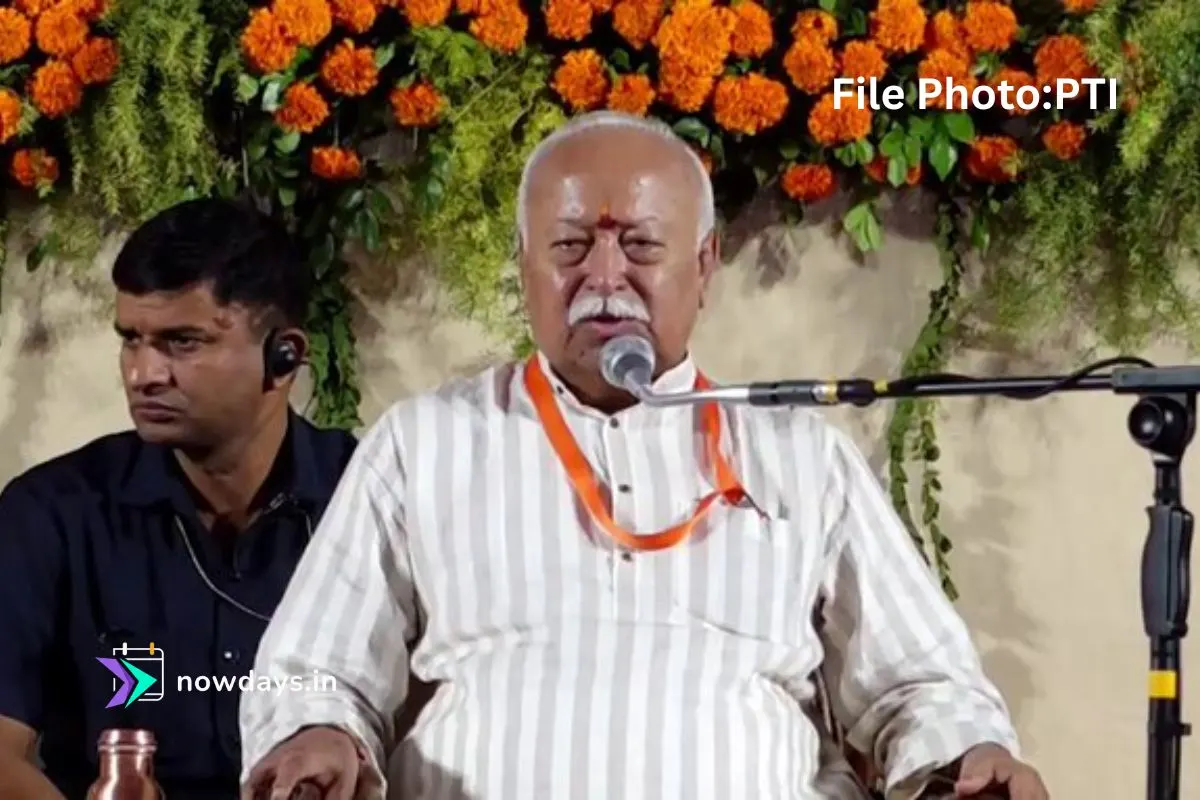In a pointed critique of India’s public service landscape, Rashtriya Swayamsevak Sangh (RSS) chief Mohan Bhagwat has voiced deep concern over the escalating commercialization of education and healthcare, lamenting that these essential sectors have transformed from acts of selfless service into businesses, pushing them beyond the reach of the common person. Speaking at the inauguration of a cancer care facility in Indore, Bhagwat argued that the spirit of ‘seva’ (service) that once defined these domains has been replaced by a profit motive, making them neither affordable nor accessible for ordinary citizens.
The Core of the Crisis: From Service to Commerce
Bhagwat’s central argument revolved around the idea that education and healthcare have strayed from their original vocations. “Health and education were once acts of ‘seva’—selfless service,” he remarked, adding, “Today, they have been commodified to such an extent that they are neither affordable nor accessible”. He recalled a minister once referring to education as a “trillion-dollar business,” noting that “business is not meant for the common man; it is for those with money”.
VIDEO | Indore: RSS Chief Mohan Bhagwat says, "Health and education are extremely important and were earlier considered as 'seva' (service), but now both are beyond the reach of common people, both have been commercialised. They are neither affordable nor accessible…"
— Press Trust of India (@PTI_News) August 10, 2025
(Full… pic.twitter.com/eMWFRHofwp
To illustrate the lost ethos of care, he shared a personal anecdote from his childhood. “I had malaria and missed school for three days. My teacher came to my home, brought jungle herbs, and ensured I recovered. He believed that a student’s well-being was his responsibility,” Bhagwat said, emphasizing that this spirit needs to return to society. He argued that this shift has created a system where, despite the rapid construction of new hospitals and schools, access remains a significant challenge for the majority.
The High Cost for the Common Indian
The RSS chief highlighted the tangible consequences of this commercial drift, particularly in healthcare and education.
- Inaccessible Healthcare: Bhagwat pointed out the severe geographical disparity in specialized medical care, noting that quality cancer treatment is available in only eight to ten major cities across India. This forces patients and their families to bear the heavy financial and logistical burden of traveling long distances for treatment. “Medical treatment should not become a source of anxiety,” he urged, calling for a system that is both affordable and geographically accessible.
- Out-of-Reach Education: Drawing a parallel, he observed that students face similar hurdles, often having to travel far from their homes to access quality education. While education hubs have emerged, they remain inaccessible to many due to high costs. “Earlier, teaching was a duty—now it is a business,” he stated, capturing the essence of the problem.
A Call for a New Approach Rooted in ‘Dharma’
Instead of relying on modern corporate terminology, Bhagwat advocated for a return to traditional Indian values to solve these issues. He critiqued the concept of Corporate Social Responsibility (CSR), urging society to instead embrace ‘dharma’—a principle he defined as a duty that unites and elevates society—as the guiding force for social initiatives.
He called upon the “capable and resourceful members of society” to take the lead in establishing institutions that prioritize service over profit, ensuring that quality education and healthcare are available to every citizen. Furthermore, Bhagwat cautioned against the uncritical adoption of Western medical models, advocating for an integrated approach that respects and utilizes India’s diverse medical traditions, including homeopathy and naturopathy, tailored to individual needs.
Significance in the National Discourse
While Bhagwat has previously commented on the need for a “Bharat-centric” education system, his recent remarks from Indore are a direct and sharp critique of the prevailing economic models in two of the country’s most vital sectors. His position gains significance as it comes from the head of one of India’s most influential social and cultural organizations, potentially shaping policy conversations and encouraging a re-evaluation of privatization’s impact on social equity.
Though direct reactions from policy experts to this specific speech are still emerging, his concerns echo long-standing warnings from public health advocates and education activists about the dangers of unchecked commercialization and the widening gap in access to quality services. The speech places the moral and ethical dimensions of these “businesses” squarely in the national spotlight, challenging stakeholders to find a sustainable balance between viability and the fundamental right to health and education.








